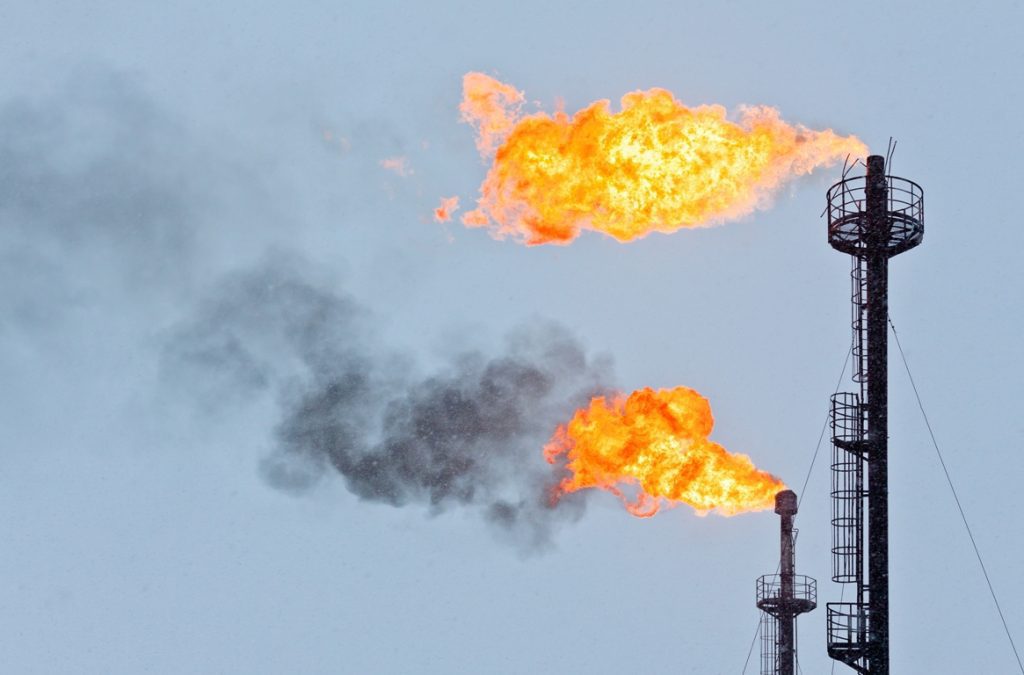Did you know that oil and gas emissions are the largest and fastest growing source of carbon pollution in Canada? Emissions from the oil and gas industry in Canada are now estimated to be approx 30 percent Canada’s Greenhouse Gas Emissions.
With each passing year, emissions from oil and gas production continue to rise. From 2005-2021, oil and gas emissions in Canada increased 12 percentAt the same time, other industries such as electricity and heavy industry reduced their own pollution during the same period.
By 2021, recognizing the urgent need to address industrial carbon pollution, the Canadian government has committed to curbing and reducing oil and gas emissions at the pace and scale necessary to keep global warming below 1.5 degrees Celsius. The proposed emissions cap, expected to be implemented by the end of 2023, is the industry’s best shot at doing what has so far been reluctant to do on its own — reduce emissions from oil and gas production.
A majority of Canadians support putting firm limits on oil and gas emissions. About 70 percent People in Canada want a cap on oil and gas pollution to ensure the industry gets its fair share of the climate effort.
For more than two decades, Canada has never successfully met its emissions reduction target. By capping oil and gas emissions, we have a strong chance to finally break this shameful system. Properly designed and implemented, emissions caps will curb ever-increasing oil and gas pollution. On the other hand, Canada It cannot meet its climate goals Without a strong and ambitious cap on pollution from the oil and gas sector.
For decades, Canada’s largest and fastest-growing source of carbon pollution — the oil and gas industry — has had a free pass to pollute with no consequences. Why? Because oil and gas companies have used their influence to weaken and delay climate policy.
A few oil and gas CEOs now want to do the same with emissions caps because it would make them actually accountable for their pollution. Oil and gas companies continue to make record profits, but despite their public „net zero” claims, are not investing in reducing their pollution.
It’s time for Canada’s oil and gas industry to do its fair share of climate action. In a global context, Canada’s fair share of domestic emissions targets 60 percent Emission reduction from 2005 to 2030. At a minimum, the oil and gas emissions cap should meet the federal government’s economy-wide target of at least 40-45 percent reductions from 2005 levels by 2030.
If it falls short of Canada’s overall economic target, other businesses, communities and households will have to bear the additional burden. To meet Canada’s climate goals, all sectors must be held accountable for doing their part — and that includes oil and gas.
The emissions cap could future-proof Canada’s economy
We need ambitious climate policies to protect Canada’s economy in a global market moving away from fossil fuels. In contrast to the oil and gas industry’s scare tactics and disinformation campaigns, the latest Research Stronger climate action will boost job growth in the energy sector, helping to create 700,000 more jobs.
Blocking and delaying climate policies, a tactic we’ve seen time and time again from the oil and gas industry, shows a lack of concern for their own workers. As the world moves towards cleaner energy, a A sharp decline in global oil demand. Oil sands and oil production jobs in Canada will decline At least 93 Between 2025 and 2050, regardless of which climate policies are in place.
A cap on carbon emissions will also lead companies to invest in projects – etc Low cost initiatives To stop methane leakage – it will create jobs. It will also provide certainty that businesses can count on. Currently, oil and gas companies are not reinvesting their record profits in cleaning up their pollution, resulting in lost job creation opportunities.

Emissions limits are good for the economy, the environment and the health of Canadians. The cost of inaction is huge. Climate inaction is estimated to cost Canada $25 billion in GDP losses by 2025. Scientists say we can’t afford further delays in climate action — and faster and deeper emissions cuts are needed to prevent the worst climate catastrophes.
The Canadian government takes action The social cost of greenhouse gases By quantifying the financial impacts of climate pollution on the Canadian economy. This social cost calculates the damages caused by various climate change impacts such as wildfires, extreme weather events, human health impacts, property damages, etc.
The current social price of carbon is $261/ton, which means that in 2021 (the latest data we have in Canada), oil and gas production will cost our society $50 billion.
A way forward
The Canadian government faces an important decision that will affect the health of our climate and our economy. Will it continue to let the oil and gas industry off the hook for its pollution, with weaker emissions limits? Or will it stop with a few oil and gas CEOs and listen to the wishes of the majority of people who support emissions caps in Canada?
The right choice leads to stronger economies, safer climates and healthier communities. Let’s hope the federal government remembers who is accountable to the Canadian public — not a small number of oil and gas CEOs. Let’s hope Canada builds a better and brighter future for all of us, not just the rich executives in the corner offices while we screw up our climate.
Take Action: Tell Canada to Stop Big Oil Polluting Our Climate!

„Oddany rozwiązywacz problemów. Przyjazny hipsterom praktykant bekonu. Miłośnik kawy. Nieuleczalny introwertyk. Student.
